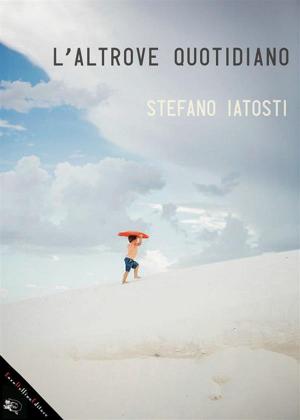Mont-Saint-Michel and Chartres
Nonfiction, Travel, Europe, France, Museums, Tours, & Points of Interest, Adventure & Literary Travel| Author: | Henry Adams | ISBN: | 9786050371222 |
| Publisher: | Henry Adams | Publication: | April 10, 2015 |
| Imprint: | Language: | English |
| Author: | Henry Adams |
| ISBN: | 9786050371222 |
| Publisher: | Henry Adams |
| Publication: | April 10, 2015 |
| Imprint: | |
| Language: | English |
The church stands high on the summit of this granite rock, and on its west front is the platform, to which the tourist ought first to climb. From the edge of this platform, the eye plunges down, two hundred and thirty-five feet, to the wide sands or the wider ocean, as the tides recede or advance, under an infinite sky, over a restless sea, which even we tourists can understand and feel without books or guides; but when we turn from the western view, and look at the church door, thirty or forty yards from the parapet where we stand, one needs to be eight centuries old to know what this mass of encrusted architecture meant to its builders, and even then one must still learn to feel it. The man who wanders into the twelfth century is lost, unless he can grow prematurely young.
One can do it, as one can play with children. Wordsworth, whose practical sense equalled his intuitive genius, carefully limited us to "a season of calm weather," which is certainly best; but granting a fair frame of mind, one can still "have sight of that immortal sea" which brought us hither from the twelfth century; one can even travel thither and see the children sporting on the shore. Our sense is partially atrophied from disuse, but it is still alive, at least in old people, who alone, as a class, have the time to be young.
The church stands high on the summit of this granite rock, and on its west front is the platform, to which the tourist ought first to climb. From the edge of this platform, the eye plunges down, two hundred and thirty-five feet, to the wide sands or the wider ocean, as the tides recede or advance, under an infinite sky, over a restless sea, which even we tourists can understand and feel without books or guides; but when we turn from the western view, and look at the church door, thirty or forty yards from the parapet where we stand, one needs to be eight centuries old to know what this mass of encrusted architecture meant to its builders, and even then one must still learn to feel it. The man who wanders into the twelfth century is lost, unless he can grow prematurely young.
One can do it, as one can play with children. Wordsworth, whose practical sense equalled his intuitive genius, carefully limited us to "a season of calm weather," which is certainly best; but granting a fair frame of mind, one can still "have sight of that immortal sea" which brought us hither from the twelfth century; one can even travel thither and see the children sporting on the shore. Our sense is partially atrophied from disuse, but it is still alive, at least in old people, who alone, as a class, have the time to be young.















